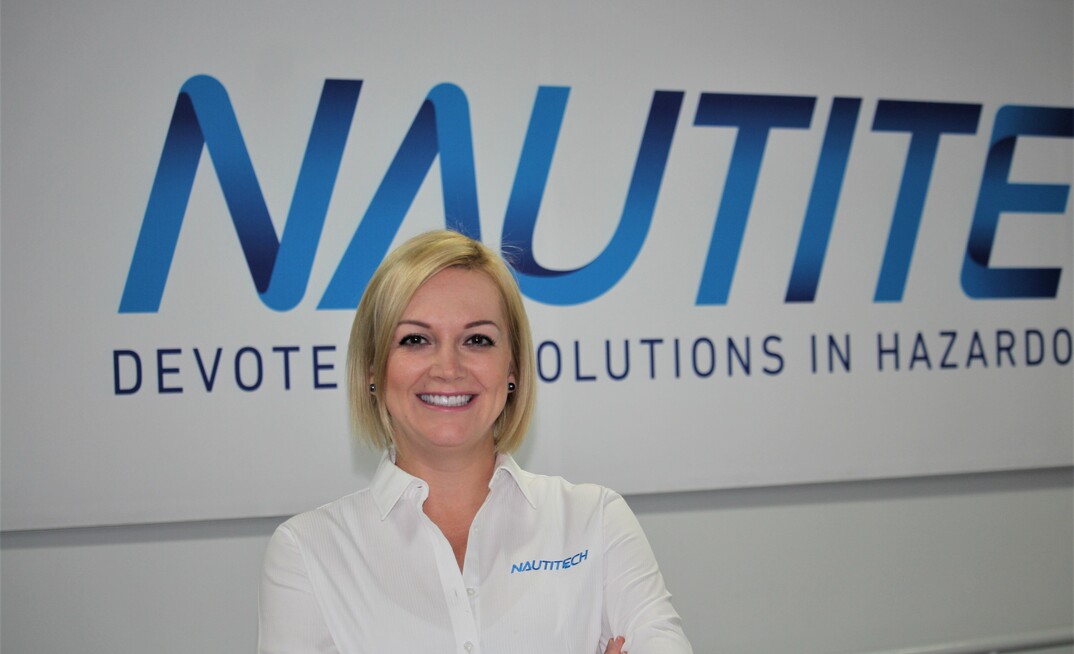Blana was recently honoured by the NSW Minerals Council for her achievements in innovation and technology in mining and for developing the first controllable intrinsically safe light for underground coal mining.
In part it is recognition for more than 20 years running Nautitech, a company she founded with her late husband in 2000.
"During the initial years I worked my way through every role in the company except probably soldering, so I know my way around quite well," Blana said.
"Ten years ago I made the choice to take the reins and continue to build on the original vision for the company.
"Last year we celebrated 20 years in business and over that time, the business has grown and established itself as a respected provider of electronic solutions in underground mining."
Blana openly admits her background does not match the typical profile of someone in the mining industry.
"The idea that I can make my own little ‘dent in the universe' is very attractive to me and I have the drive to lead a company that has achieved wins on many fronts from innovation to gender equality," she said.
"I see that as Nautitech's contribution to making the world a better place.
"During the early years, our goal was to establish a successful engineering and manufacturing business with a focus on product development.
"As our tagline suggests, we are ‘devoted to solutions in hazardous areas' and we have never deviated from this objective."
Nautitech's first and most successful product, the Methane Master CH4 monitoring system, was developed and continues to evolve as a direct result of feedback from its customers.
"Today it is the leading CH4 monitoring system across Australia and demonstrates our commitment to improving safety," Blana said.
"It has taken us 10 years to become an ‘overnight success' and we've done that by being persistent, standing by our products and not shying away from responsibility."
On average, Nautitech reinvests 15% of its turnover into development of new solutions.
"As a relatively small company with a short decision chain, we have chosen a business model that is reliant on R&D," Blana said.
"This makes it possible for us to grow organically rather than through acquisitions and distributions agreements."
Blana said ongoing consultation with the mining community was critical for Nautitech's development.
"Given the long lead times involved in product development and certifications in the hazardous space, we can't afford to design a product that's far from a customer's requirements," she said.
"It is imperative that we collaborate with customers one-on-one as well as attend industry conferences and networking opportunities to stay on top of what's happening in mining.
"Our field service technicians, business development managers and engineers develop strong relationships with the mines and OEMs [original equipment manufacturers] that we work with to learn what applications can help them the most. This type of feedback is invaluable for innovation and product development."
Blana said it was also important for Nautitech to maintain collaborative relationships with higher education and research centres to maintain its product pipeline.
"Our resources are finite and we don't want to reinvent the wheel," she said.
"The skill sets and knowledge from our relationships with organisations such as the CSIRO, UTS and University of Queensland have been instrumental in allowing us to be more efficient.
"Rather than focusing on micro design, we can take a broader approach and concentrate on system level integration."
Nautitech also provides opportunities for engineering interns from local universities to gain experience in the industry and allow them to add enthusiasm and fresh ideas in return.
Blana also believes Nautitech has a part to play in improving safety in the mining industry by changing the culture and work practices with the help of its technology.
"By its nature, underground mining is one of the most challenging environments for both human and machine assets and the push towards automation will change both the culture and work practices in hazardous areas," she said.
"Nautitech can play a big part in shifting work practices by monitoring how machines are used and maintained through data capture and analytics.
"This will allow mines to not only monitor assets but also introduce checks and balances on behavioural practices."
Blana nominates Nautitech's Spitfire Broadband Powerline Modem, Methane Master, and Extremecam Thermal Camera as some of the innovations she is most proud of.
"I'm very proud of our globally competitive and award-winning products with a few standouts that have the distinction of being industry-first," she said.
The Spitfire Broadband Powerline Modem is the first to transfer real-time data from the face and it's patented in Australia, South Africa and the United States with a European patent pending.
The Methane Master is the first widely adopted methane monitoring and shutdown system in Australia and the Extremecam Thermal Camera is the first thermal camera for Group I hazardous areas.
The company has also developed the Cubex IS Lights, the first controllable intrinsically safe flood lights.
"I think technological advances will mean more remote operations and fewer humans underground," Blana said.
"There is also a greater push towards mining with a social license, which affects mines, suppliers, and other industry stakeholders and will hopefully put the mining industry in a more favourable light."
Blana believes Nautitech will need to focus more and more on intrinsically safe technology, given the hazards of underground mining and the increased reliance on remote operations,.
"[It will need to] continue to develop products that work together and deliver integrated systems to support automation and asset monitoring," she said.
"We are encouraging our customers to use data science and visualisation to improve operations on all fronts - protect human workers, make underground machinery more efficient, and increase output."
























